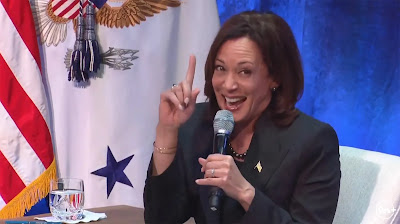Progressive Democrats are tirelessly accusing the Trump administration of being a fascist regime and comparing it to 1930s Germany. Kamala Harris insinuated that Trump is a Fascist during the 2024 presidential campaign. Vice Presidential candidate Tim Walz recently compared ICE agents to the Gestapo. Al Gore compared the Trump administration to Nazi Germany, and Illinois Governor JB Pritzker made a similar comparson last February.
This is bold talk coming from the Democratic Party, which hoodwinked the American people by installing Joe Biden, a cognitively diminished grifter, as the leader of the Free World, and then backed perpetually befuddled Kamala Harris to succeed him.
Nevertheless, these gasbags are right to compare contemporary America to the Weimar Republic during the years that saw Hitler come to power.
First, the Weimar Republic was racked by political violence fomented by both the Left and the Right. Similarly, our country has seen a rise in political violence in American cities--most notably the George Floyd riots.
Second, like Germany, America is wracked by vicious antisemitism in the nation's universities. Who could have foreseen this ugliest form of racism springing up in academia, which has been obsessed for more than three decades with diversity, equity, and inclusion?
Finally, and most disturbingly, the United States, like Germany between the World Wars, is seeing the frightening specter of political assassinations, including two assassination attempts against President Trump and the recent murder of a young Jewish couple in Washington, DC.
Our nation has endured periods of violence, bigotry, and racism before. Americans weathered the Salem Witch Trials, the rise of anti-Catholic Nativism in the 1850s, the Klan eras of the nineteenth and twentieth centuries, and McCarthyism. Those were ugly times, but American democracy survived.
However, the present unrest, which progressive Democrats have misdianosed, is different. This time around, our political malaise is stewing in an inflationary economy, and inflation, like a match thrown into a barrel of gasoline, threatens an explosion that can destroy our society.
When Money Dies, Adam Ferguson's masterful study of the German economy in the years before Hitler came to power emphasized the existential threat that inflation posed to Germany:
Undoubtedly, . . . inflation aggravated every evil, ruined every chance of national revival or individual success, and eventually produced precisely the conditions in which extremists of Right and Left could raise the mob against the State, set class against class, race against race, family against family, husband against wife, trade against trade, town against country. It undermined national resolution when a simple want or need might have bolstered it.
Drawing on the German experience after the Central Powers lost World War I, Ferguson concluded that the collapse of a nation's currency is catastrophic.
If what happened to the defeated Central Powers in the early 1920s is anything to go by, then the process of collapse of the recognized, traditional, trusted medium of exchange . . . unleashes such greed, violence, unhappiness, and hatred, largely bred from fear, as no society can survive uncrippled and unchanged.
Today, while progressive Democrats indulge in incendiary rhetoric, the dollar is running the danger of being replaced as the world's reserve currency. At the same time, President Trump confronts a ballooning national debt and stubborn inflation.
I'm pessimistic about the prospect of Trump getting inflation under control. Nor do I think he'll be able to rein in the national debt. Indeed, it is probably politically impossible for him to do so.
When it becomes clear to the average pensioner, Social Security recipient, and Medicaid beneficiary that their standard of living is plummeting and they cannot purchase their basic needs, we will see big trouble. God help us if the United States stumbles down the path of the Weimar Republic.
 |













